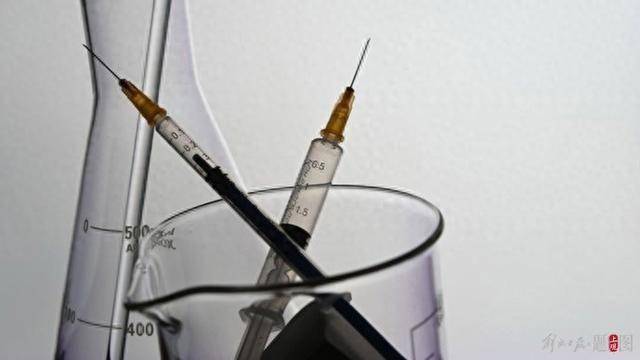Source: Shangguan News
Recently, the Guangxi Center for Disease Control announced that in September, a phase III clinical trial of the HPV vaccine for men will be launched, involving a domestic nine-valent vaccine. Journalists also learned that similar clinical trials have already been conducted in the country, for instance, a phase III clinical trial of a domestic nine-valent HPV vaccine for men has also been initiated by the Hunan Center for Disease Control and Fudan University’s affiliated obstetrics and gynecology hospital as co-leading units.
Many female friends know that receiving the HPV vaccine can effectively prevent cervical cancer, so is it necessary for male friends to get vaccinated? Reporters interviewed two experts, Cao Yuankui and Cong Qing from the cervical department of Fudan University’s affiliated obstetrics and gynecology hospital, to find out.
HPV virus is also unfriendly to men
Experts straightforwardly introduced that men also play an important role in the infection and transmission of HPV. The HPV virus is equally unfriendly to men. Literature reports that sustained HPV infection in men can cause 88-94% of ** cancers, 40-60% of ** cancers, and nearly 100% of genital warts result from HPV infection, with 90-95% caused by HPV types 6 and 11, in addition to 30-50% of oropharyngeal cancers.
So, is it necessary for men to receive the HPV vaccine? Let’s first look at the situation of HPV infection in men: Data from the CDC in the United States in 2021 showed that among the 37,300 new cases of HPV-related cancers each year, 41.8% are from men. A study published in the authoritative medical journal “The Lancet – Global Health” indicates that nearly one-third of men worldwide are infected with at least one type of genital HPV, and about one-fifth of men are infected with one or more high-risk types of HPV. Therefore, male HPV infection is quite common, and the risk of associated ** cancers, ** cancers, oropharyngeal cancers, and genital warts will significantly increase after forming persistent infections.
Female friends can prevent cervical cancer by getting the HPV vaccine, and men can protect themselves through the vaccine as well. Experts explain that currently, there are nine-valent HPV vaccines available for men abroad, and men with the financial means can consider trying it.
Benefits of men receiving the HPV vaccine
Once men receive the HPV vaccine, the benefits are evident. Experts say that first, it protects themselves, reducing the risk of ** cancers, ** cancers, oropharyngeal cancers, and genital warts; secondly, it can protect their partners. Theoretically, there are no absolute age limitations for receiving the HPV vaccine. Currently, due to age and follow-up time limitations, the recommended vaccination age for the nine-valent HPV vaccine abroad is 9-45 years. Whether individuals beyond the recommended age can receive it and its effectiveness still need further clinical research data support.
Which male friends are recommended to receive the HPV vaccine? Experts suggest that the following high-risk HPV-infected male friends can consider it:
1. Those with multiple sexual partners;
2. Those who began sexual activity at a younger age;
3. Those with sexual partners who are HPV carriers;
4. Individuals with autoimmune diseases or weakened immune systems;
5. Men who have sex with men (MSM);
6. Other sexually transmitted disease patients.
Sexual transmission is the main route of HPV transmission (generally, using a condom throughout the entirety of sexual activity can usually prevent transmission), but it is not the only route. As for whether it is necessary to test for HPV before vaccination, experts believe it is not essential. The requirements for male HPV testing are high, and special testing tools are needed. If testing is desired, it is recommended to visit professional institutions.
Currently, the anorectal clinic at Fudan University’s affiliated obstetrics and gynecology hospital provides HPV testing services for men. Even if the result is positive, there is no need for excessive worry. 90% of HPV infections are transient, with only 10% evolving into persistent infections. If HPV is positive but there are no symptoms, and doctors find no abnormalities upon examination, generally, no treatment is necessary.


